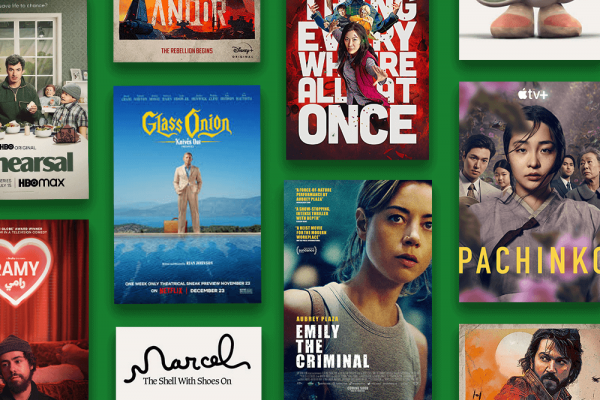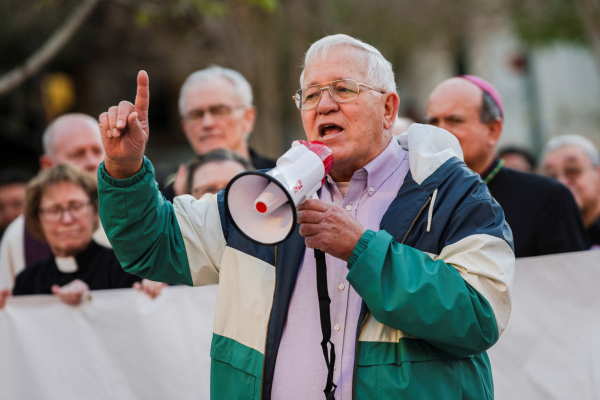Making roundup lists is stressful. If I’m not self-conscious about how people might judge my rankings (why yes, I DO think Kung Fu Panda was a better 2008 film than The Dark Knight, thank you very much) or concerned that recency bias might affect my choices, I feel my list is disingenuous if I don’t give every film or TV show its due.
Yet I know my limits: There were more than 13,000 films released this year and God-knows-how-many TV shows; it’s impossible to watch everything. So, the question I find myself asking is less “Which films and TV shows are the best?” and more “Which stories are worthy of one’s time and engagement?”
In a world of choices, every roundup list makes a claim of what — and whose — stories matter, “a reflection of a critic’s biases,” as The New Yorker TV critic Inkoo Kang writes in her 2022 rankings. So here are some of my biases: The list below reflects my own preference for films and shows that help me leverage my own viewership to sustain a lifestyle of equity and inclusion. I’ve included 10 films and shows that gave the spotlight to communities, issues, and stories that we usually don’t see — and how richer the world is because of them.
Movies
1. Everything Everywhere All at Once
Everything Everywhere All at Once leaves little to the imagination: talking rocks, hot dog fingered people, and culinary racoons are just a small sampling of the colorful absurdity on screen. The film focuses on struggling laundromat owner Evelyn (Michelle Yeoh) who is told by an alternate universe version of her husband that she’s the key to saving the multiverse. It’s a high calling that stands in deep contrast with her own mundane life and her growing awareness of alternate lives she could have lived. For viewers, it’s a familiar struggle: “We, too, feel something is missing, that we’re living in the darkest timeline,” JR. Forasteros writes of the film. “It’s tempting … to disconnect from the pain of our reality and get lost in the fantasy of better universes.”
2. Marcel the Shell with the Shoes On
Meet Marcel, a talking, one-inch shell, whose daily life is documented by filmmaker Dean (Dean Fleischer Camp). The film is “unexpectedly profound” with “moments of gut-wrenching truths followed by quick bursts of humor,” writes reviewer Olivia Bardo, yet it is more than just a feel-good movie. The film “challenges us to slow down and take a good hard look at ourselves and at every small detail in our lives — from fears, to shoes, to the dust that drifts onto our coffee tables.”
3. Emily the Criminal
Don’t let the title fool you: Emily (Aubrey Plaza) is just as much a victim as she is a criminal. Drowning in student debt she knows she’ll never be able to pay off, Emily resorts to illegal activities to make a living. Before you cast stones though, writer/director John Patton Ford makes it clear from the jump that the problem is not Emily but the capitalist system that thrives on her exploitation. “Ford’s film never glamorizes Emily’s experiences, instead showing us a desperate person fed up with a world that gives her virtually no other choice but to break the law to survive,” writes reviewer Abby Olcese.
4. Tár
Tár makes me think of 1 Corinthians 13:1: “If I speak in the tongues of humans and of angels but do not have love, I am a noisy gong or a clanging cymbal.” The film follows renowned orchestra conductor Lydia Tár (Cate Blanchett) who uses her power to exploit those around her and her status to hide those transgressions. Though she undeniably makes great art, reviewer Joe George writes that “because of the way she treats people, her signature sound is that of a poorly tuned chime.” Must greatness always come at the cost of other’s lives and well-being? This film reckons with the question.
5. Glass Onion: A Knives Out Mystery
Glass Onion: A Knives Out Mystery is every bit as trenchant and clever as its predecessor , and in a rare feat, is more prescient. Detective Benoit Blanc (Daniel Craig) returns to solve another murder mystery, this one taking place on the Greek island home of tech billionaire Miles Bron (Edward Norton), an obvious stand in for Elon Musk. In the U.S., we tend to assume that “people who have a lot of money must be smart otherwise they would be poor, right?” writes Tyler Huckabee of Musk’s Twitter takeover, and this idea is “so fundamental to the U.S. enterprise that we are terrified by the thought of really considering its merits.” Glass Onion offers viewers a witty and crowd-pleasing critique of this dearly held idea.
TV
1. Andor
Those feeling Star Wars franchise fatigue will be renewed by Andor, a gritty, down-to-earth exploration of how its titular character transforms from a self-centered thief to the sacrificial rebel that we see in Rogue One: A Star Wars Story. In Andor, the spotlight shifts from grandiose lightsaber battles to the ways working-class people are affected by the cruelty of empire, including how the Empire coerces people into supporting its fascist rule. Andor’s rebellion echoes Karen González, who writes, “Jesus does not ask me or anyone to assimilate but asks us to be fully ourselves.” True rebellion is the willingness to be fully oneself in a system that tries to strip away dignity.
2. The Sandman
A show that will “restore your faith in comic adaptations,” according to reviewer Brandon Grafius, The Sandman focuses on Morpheus (Tom Sturridge), the king of dreams, as he seeks to rectify the damage his absence has done to the world after his century of imprisonment. The show does not shy away from depicting brokenness and beauty in equal measure, and Grafius notes that the episodes “offer contrasting visions of darkness and kindness, evil and hope, but they contrast each other in another important way: They’re a vision of how the universe works when humans try to control it, versus how the universe can run when we make peace with the small roles we play in this life, and the short time we’re allotted for them.”
3. Pachinko
A stunning and sweeping adaptation of part of Min Jin Lee’s novel of the same name, the first season of Pachinko departs from the book’s linear structure and instead shifts back and forth from 1989 to the 1920s to tell the story of four generations of a Korean family as they travel from Korea to Japan throughout much of the 20th century. The result shows how family history can impact one’s present development. The show is, according to reviewer Da’Shawn Mosley, a “story of a family’s resilience in the face of discrimination, poverty, and surveillance,” and offers hope in the ways one can find life even in hard circumstances.
4. The Rehearsal
Part documentary and part comedy, Nathan Fielder’s The Rehearsal features Fielder helping ordinary people “rehearse” difficult conversations or life events with the aid of constructed sets and hired actors. Yet real life never goes as planned. As the show progresses, Fielder realizes his efforts might not have their intended effect. The show articulates that, “Instead of re-running what we could have done better, sometimes the only thing we can do is accept what’s happened, ask for forgiveness from others, and forgive ourselves as well,” writes reviewer Abby Olcese.
5. Ramy
Who would have thought a comedy series could offer profound musings on free will, predestination, and the systematic effects of sin? But Ramy is such a show. It this third season, the show dives deeper into millennial American Muslim Ramy Hassan’s life (Ramy Youssef) as he navigates these questions while trying to sort out his own spiritual beliefs. Reviewer Amar Peterman writes that while Ramy isn’t a likeable character, he helps us see that “1) the world is broken and 2) we were not made to navigate this brokenness alone.”
Got something to say about what you're reading? We value your feedback!







